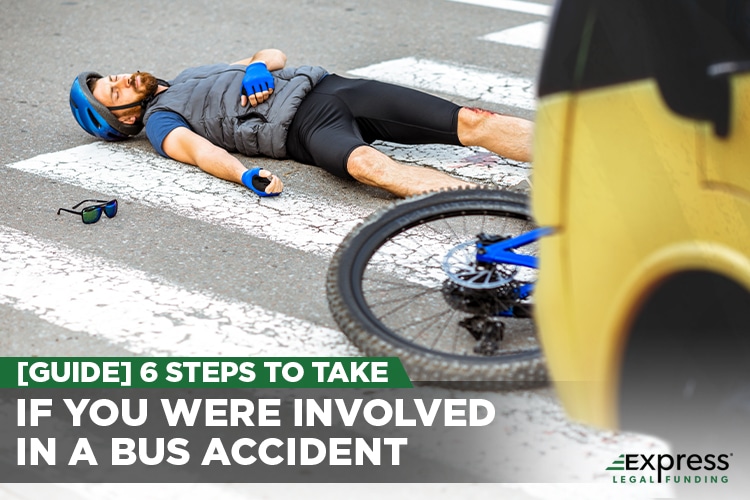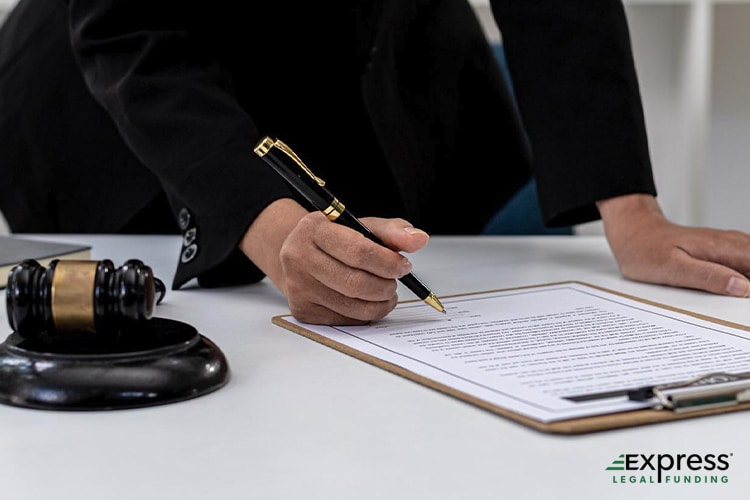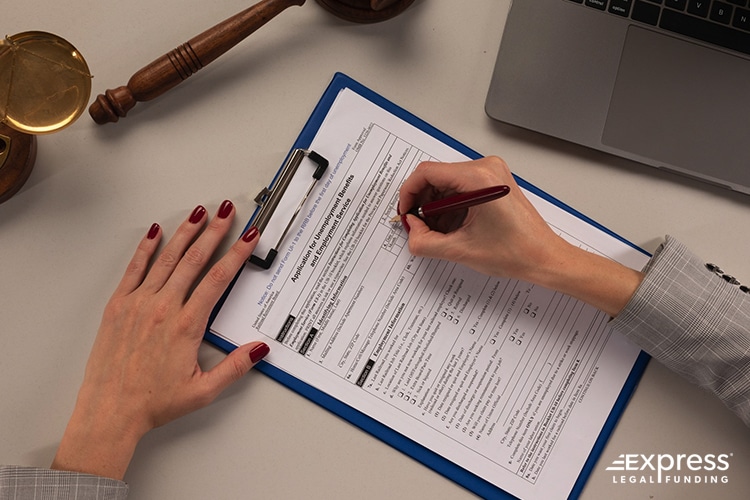
We are all familiar with how devastating motor vehicle accidents can be. Those of us who have been victims understand how to hire a car accident attorney and to seek compensation for our injuries and damaged vehicles.
However, motor vehicle accidents can become more complex depending on the people and vehicles involved. Standard collisions with two cars are relatively typical, while crashes involving multiple vehicles are less common.
However, perhaps one of the more chaotic collisions is those involving buses.
Buses are large vehicles capable of inflicting significant damage when they collide with anything. This scale makes serious injuries sustained in bus crashes potentially lethal.
Some buses are not equipped with seat belts, which can cause harm to the passengers of the bus as well. As a surviving bus accident victim, you might be wondering what the next step is.
With this article, we hope to guide you on the next step, or six, you should take following an unfortunate bus accident.
(This article is written addressing bus accidents resulting in personal injury claims and not third party liability)
Step #1: Immediately Seek Medical Attention
The odds are that an ambulance rushed you to an emergency room if you have been involved in a motor vehicle accident with a bus. Injuries from a collision of this magnitude are no laughing matter and should be treated seriously.
If medical personnel did not take you to the nearest medical facility for whatever reason, you should arrange to be taken there as soon as possible following the accident.
The most obvious reason is that you need to be assessed to ensure that you did not suffer any severe injuries that could result in death or life-long side effects.

However, there is a legal reason you should seek out medical assistance. The emergency physician will verify your health during your initial evaluation and ensure your life is not in immediate danger.
Then, they will take measures to correct any issues and make sure the risk dissipates, and you can go about your life as you usually would.
However, the treatments they apply or instructions they give are essential details for any legal action you will be pursuing. More on that later.
In addition to ensuring your immediate health is not at risk of deteriorating, the physicians will likely refer you to other medical practices for recovery treatment.
These referrals will include rehabilitation like physical therapy to help bring your body back up to speed following any treatment or surgery you undergo.
Your medical providers can heal your body by outlining your recovery treatment while also providing the information you will need to pursue your legal case.
Step #2: Determining Who to File Against
“Fault” is an essential part of the legal world, especially in personal injury claims. In most motor vehicle accidents, fault needs to be attributed to one of the drivers involved in the accident. However, things can become more complicated depending on the number and type of vehicles involved in the accident.
For example, when it comes to accidents involving a bus, you need to determine who you are filing the claim against, and several factors play into how to figure that out.
To determine fault, the involved parties will generally turn to the information available, such as the insurance adjuster’s documentation and the official police report. When a major accident takes place that involves injury and economic damages, it’s called a tort. Torts come in two primary types – intentional and negligence torts.
Let us start by assuming you were a passenger on the bus involved in the accident.
While sitting or standing on the bus, another vehicle collides with the bus, cuts it off, and causes it to veer off course into a wall. As a result, you have suffered severe injury.
In situations like this, you would be seeking remunerations from the driver responsible for the bus being struck.
This situation would result in you filing a personal injury claim against the independent driver. This example is the most specific outcome as you would proceed with a standard personal injury claim to recoup your losses.

Let us return to the hypothetical scenario where you are a passenger on the bus when it suddenly collides with another vehicle or a wall or what have you.
However, things become more complicated when the bus driver is the cause behind the crash. This time, the reason is that the bus driver was being unsafe while operating the vehicle.
Your injuries are the bus driver’s responsibility due to driver negligence, but the driver is not whom you target with your claim.
Government entities generally operate buses for public transportation. It does not matter if the bus is a standard transport across the city or is solely responsible for transporting students to an academic facility.
The bus and its operator are the bureau’s responsibility that has retained them. This situation is where things become complicated.
You now have to file your claim against a government agency which requires a great deal more procedure and can even be subject to government exemption depending on the circumstances.
The same issue arises if you were operating your vehicle and were hit by the bus.
Again, the bus driver is responsible for the action, but all liability lies with the agency or the bus company that hired them.
Depending on the situation, your claim could be against a school district (if it was a school bus accident), a business (for a charter bus or tour bus), or even the local municipalities (for a city bus accident).
As with any case, there could be complications and extra considerations. If a bus passenger was responsible for the bus crash or other bus passengers were injured, it could shift responsibility.
The insurance policy held by the owner of the bus is another factor.
If the injuries sustained could impact your quality of life, such as broken bones or witnessing passenger fatalities, there could be other damages such as wrongful death.
Your next step should be to hire legal counsel. A case review will allow you to go over the specifics of your bus accident case and work towards the best possible outcome.
Step #3: Consider Retaining Legal Counsel
Many people choose to represent themselves in legal situations, but it is never recommended for injured people to represent themselves when dealing with personal injury claims, especially against a government body.
This is because government procedures and policies affect how the claim is processed. These procedures further obscure the already complex nature of personal injury claims. That said, seeking a bus accident attorney is technically an optional step.

If you seek out an attorney’s legal advice, the law firm will perform the negotiations on your behalf using any information you provide with your attorney-client relationship.
If you don’t have any information handy, it can likely be gathered on your behalf by your attorney.
When dealing with a government entity, having the benefit of a legal expert negotiate on your behalf can be a significant resource and lend itself to the success of your claim.
Regardless of whether you choose to retain an attorney, your next step will depend on whether the bus driver was responsible for the accident and filing your claim.
Step #4: File a Notice of Claim
Unlike with a standard personal injury claim, in which notice is brought to the attention of the responsible party’s claims adjuster, you need to inform the local government of your intent to file a claim.
The specifics of the notice will vary based on your state and city of residence, but there are a few specific details that are included in such notices.

For example:
- You may have to state your intent to request compensation for injuries sustained and property damage, such as your vehicle.
- You may need to describe the circumstances of the accident, including the time of day and exact location.
- You will need to provide your legal name, address, and other contact information.
- You may need to describe the injuries and damage caused by the collision.
The most important thing to be aware of is your state’s statute of limitations. This is not universal and will be subject to your state’s laws. The statute of limitations serves as a timeframe for when your ability to file a claim expires.
For example, the statute of limitations for filing a claim against a governmental entity in the state of Texas is often only six months. However, a notice of claim may be required even before six months.
You will often need to file a notice of claim with the local municipality where the bus accident occurred.
For example, the city of Houston only allows you 90 days to file a notice of claim, and that is just one of many requirements in Houston.
If you have not correctly filed all of the required info within the time limit, you lose the opportunity to do so and will be left with the consequences of the accident.
There are always additional factors; for example, you are required to describe the where, the when, and the how of your accident when filing against the City of Dallas.
Regardless of the state you live in, you must submit this notice within the statute of limitations to the specifications of your state’s laws when filing against the state. After that, it becomes a matter of evidence.
Step #5: Gather Evidence
The key to any personal injury claim (regardless of who you are filing against) is providing information corroborating your side. Evidence for personal injury claims can take many forms.
Fortunately, when dealing with a collision involving a bus, there should be no shortage of witnesses and proof that your vehicle was struck by a much larger vehicle.
However, it is always important to take photographs of your car following an auto accident. If you have been hit by a bus, you have likely been rushed to an emergency room and will have to gather photographic evidence later.

Earlier, we mentioned that your medical treatment impacts your personal injury case. This impact is because your medical records and medical bills directly affect the bus accident settlement you can receive from your claim.
Generally, personal injury settlements are calculated based on the overall cost of your medical treatment. This situation remains true with bus accident lawsuits filed against the state for the most part.
So, while you are treating, it might behoove you to ask for copies of your medical records and itemized bills to give to your attorney (if you retained one).
Ordinarily, personal injury attorneys must request copies of your statements and records per HIPAA guidelines.
However, if you present documents yourself, it saves time, money, and effort. Alternatively, having copies will allow you to present the bills and records yourself if you did not retain a personal injury lawyer’s services.
Aside from this, witness statements, police reports, and surveillance traffic cam footage will prove the accident’s circumstances.
These will be scrutinized by the insurance company and the opposing council, so it’s important to share this information with your attorney. However, there remains a final concern to ensure the claim goes well for you.
Step #6: Know What You Are Trying to Prove
This final entry is less of a step and more a suggestion to remain informed. Personal injury claims require you to prove that the other motorist was at fault. In this case, the bus driver.

When filing a lawsuit against the state, here are some details to consider:
- Was the bus driver showing signs of fatigue while operating the vehicle?
- Did the driver undergo the necessary training or screening to drive the vehicle?
- Was the driver under the influence while operating the vehicle?
- Was the the car or truck overloaded?
- Was the vehicle adequately maintained in the days leading up to the accident?
All of these questions are meant to be answered throughout the investigation. With government agencies, these investigations are conducted by law enforcement to ensure none of these were factors.
If any of the concerns are proven to be factual, your odds of successfully winning the claim may increase accordingly.
Expert witnesses can help you prove your case. However, they are expensive and expect payment at the time of service. However, your bus accident lawyer can cover the cost of accident experts for you and only get repaid from the compensation money you receive.
Step #6.1: Identify Car Insurance Coverage
As discussed, not all bus accidents are the fault of the bus driver. So an unfortunate aspect of being a passenger in a bus accident is that there might not be anyone you can recover money from to pay for your injuries and damages. This can happen if:
- The person who hit the bus had no insurance.
- The person who hit the bus doesn’t have enough insurance coverage to pay all of the bus passengers in full their injuries.
Most bus companies are not required to provide uninsured motorist coverage. So the chance of there not being enough compensation money to pay all of the bus accident victims is much higher than with a two car crash.
Closing Statements
Motor vehicle accidents can be brutal, life-threatening events that can leave you severely injured or worse. This damage is doubly true when a car accident involves a vehicle as large as a bus. Unfortunately, seeking justice when the bus driver is at fault can be extremely difficult due to government protections.
However, even these agencies are not immune to repercussions from the failings of their employees. Following these steps will certainly give you a head start on navigating the finer points of your personal injury claim.

Sadly, even with this understanding of how to conduct yourself with a bus accident claim, your lawsuit might be a long and frustrating experience. It is no secret that going through a legal battle is not an inexpensive endeavor.
Aside from copay fees and extra medical expenses for any treatment following your bus accident injury, you also need to maintain your daily cost of living.
With all these costs piling up, it can be challenging to stay afloat and keep caring for your loved ones. Fortunately, there is a solution for even the most unexpected financial issues resulting from a bus accident.
There is a type of cash advance specific to plaintiff legal battles known as legal funding. Legal funding involves a company providing you with funds specifically for costs like rent, food, and utilities amidst your legal battle that only needs to be repaid if you recover money on your case.
We at Express Legal Funding offer this type of pre-settlement funding service and would love to assist you in learning more. So, call us for help anytime! Contact us today for a free consultation.
